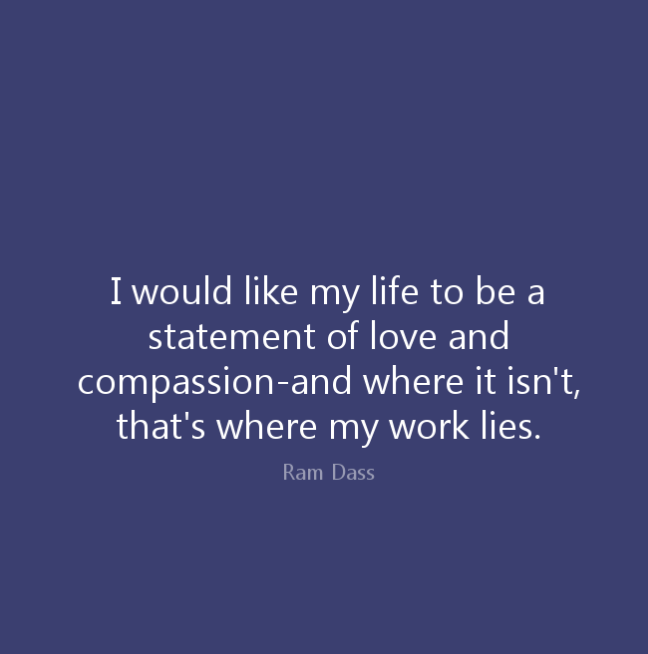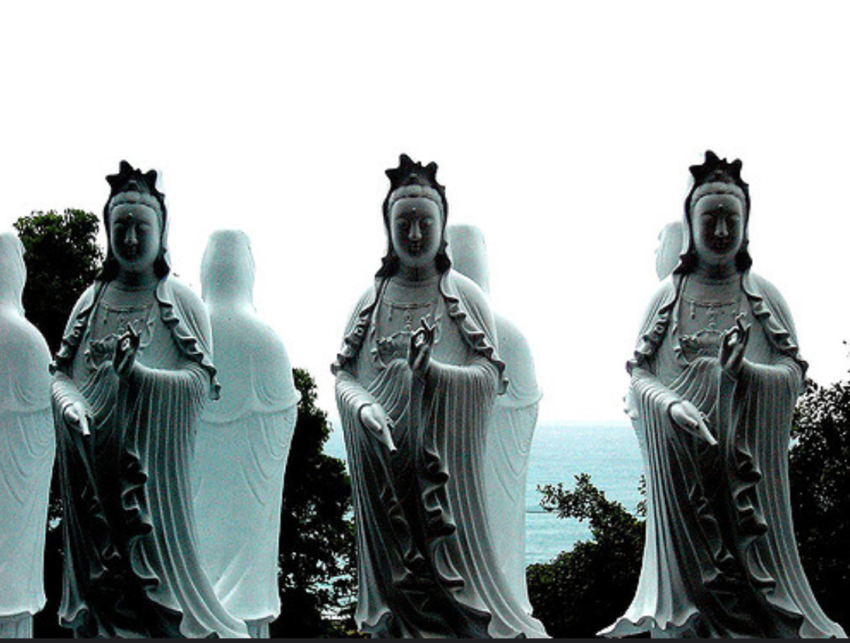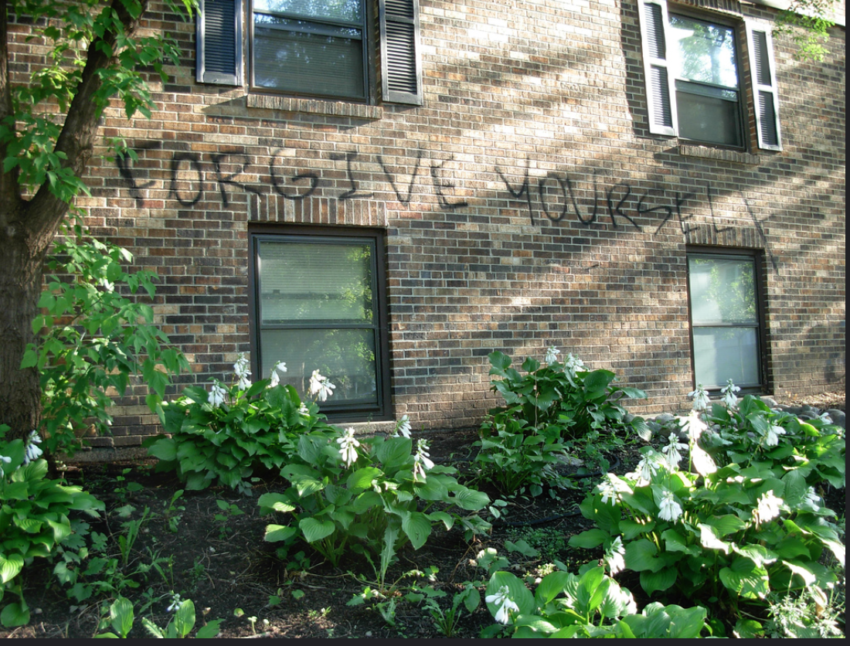I’m writing about forgiveness this week after participating in a rich conversation on the WOW Facebook page following a posting advocating forgiveness. This conversation put my brain in overdrive, compelling me to elaborate on forgiveness, as I understand it.

A Ram Dass reminder on how to move into forgiveness
Forgiveness can be especially meaningful late in life. This is the time to wipe the slate clean, to do away with emotional baggage that prevents us from living in the moment.
To quote Ram Dass: “The role of elders is to move away from ego into soul.” What could be better for the soul than to practice forgiveness?
You might ask: “How do I go about forgiving close friends or family that have hurt me?” For starters, regard forgiveness as a process and not a single act.

Quan Yin, Buddhist image for compassion, an essential component to forgiveness
As Joan Chittister advises in her book, Growing Old Gracefully: The Gift of Years, try to identify with the person you want to forgive. Recognize that their negative behavior towards you is not so much because of who you are but because of who they are.
This sentiment reminds me of the 12 Step saying, “People who hurt, hurt.” The one you need to forgive might have lashed out at you because you were a convenient source for displacing their feelings, or perhaps you evoked jealousy in her/him?
Once you can let go of your attachment to your litany of hurts, which is basically an unproductive angry response, try to imagine the object of your forgiveness bathed in white healing light. It can take time to make this shift. I’ve found meditating on sending white light to the individual in question takes hold eventually. I also try to identify with what I perceive to be their struggles and to find compassion for what runs their life.
Put simply the formula for forgiveness is: It’s not about me; find compassion for the one who hurt you in order to let go of the anger.
Once you learn to forgive you may discover that when you stop reacting with hurt feelings to the other, the relationship becomes easier. A case of the old, “It takes two to tango.”
Conversely, you may decide that the relationship is too toxic to continue. In this case you will want to find a way to withdraw from the relationship in a way that is non-accusatory. Maybe you respond in terms of, “Right now the best course for me is to take time off from our relationship.” If the relationship is with a relative, whom you will see in the future, it might be advisable to set limits where you politely object when they make hurtful remarks, and, if necessary, remove yourself from the scene, if the personal attacks don’t subside.

The value of Self-Forgiveness can’t be over-stated
Don’t overlook self-forgiveness. As women we are champions at degrading ourselves, coming up with new, creative shortcomings all the time.
Recognize that we all make mistakes. Instead of haranguing yourself over past errors, ask yourself, “What is the lesson for me?” Maybe that assignment didn’t get done on time not because you’re an idiot, but because you take on too much, or your time management skills are not up to par. Every time you sink into a litany of self-blame, remind yourself of all that’s good and valuable about you.
Reinhold Niebuhr, the imminent theologian, considers forgiveness “the final form of love.” You may also discover that forgiveness can be an incredibly liberating act. Here’s to the new freer you!

Feeling the liberation that accompanies an act of forgiveness
If you’re interested in more conversation with like-minded women, we have a Facebook group for you. Click to join our online community,WOW (Women’s Older Wisdom) Conversation.